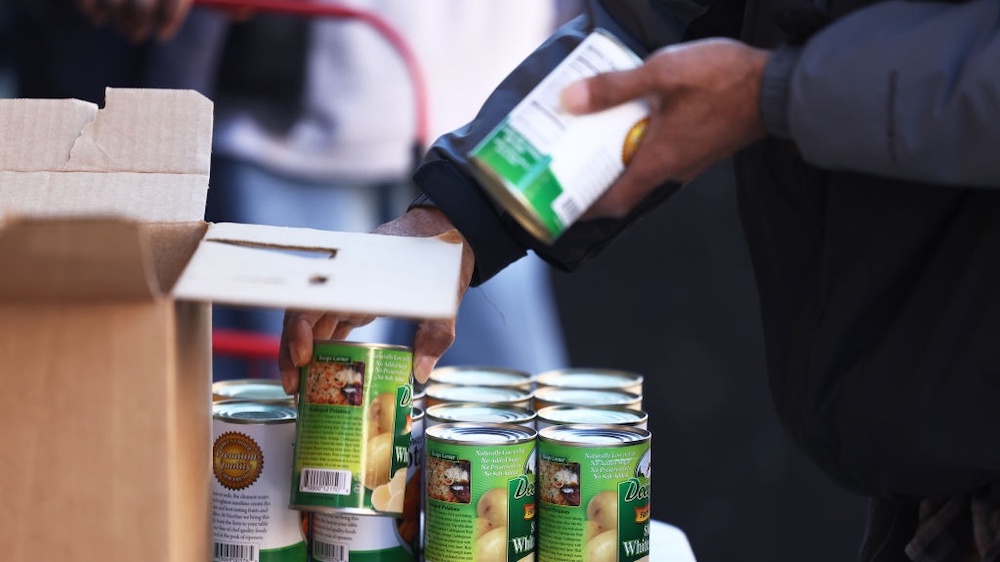If you’re interested in sharing your opinion on any cultural, political or personal topic, create an account here and check out our how-to post to learn more.
____
As COVID deaths approach 300K in the U.S., Black people are dying at twice the rate as white people. The economic impact of COVID is similarly disproportionately hurting the Black community. A new report warns that Black New Yorkers are suffering from food insecurity at more than twice the rate of white New Yorkers. If it isn’t enough that we are getting sicker and dying faster than anyone else because of the pandemic, now, we have to contend with the prospect of our families going hungry at a faster rate than anyone else as well.
Over our 400-year history, Black people have always proven to be resilient. Our families, churches, fraternal orders, community centers, even businesses, have a history of feeding the hungry, clothing those without, and providing shelter when needed. Thankfully, Black people and our institutions maintain those simple acts of charity for our own, and anyone else in need.
However, the challenges of COVID-19 and the subsequent economic crisis loom larger than the capacity of individuals or nonprofits to keep pace. As the Chief Operating Officer of New York City’s largest poverty-fighting organization, meeting the exponential demand of those who are suffering food hardships today cannot be satisfied by families, churches, nonprofits and philanthropy alone.
Even before the pandemic, 12% of New Yorkers were reporting food insecurity fears. According to Robin Hood’s newly released Food Hardship Poverty Tracker, that percentage has now increased to 32% of those surveyed. Nearly 250,000 New Yorkers signed up for food stamps since the pandemic began last spring; now, 1.7 million New Yorkers rely on SNAP benefits to feed themselves and their families while the number of New Yorkers who have had to use a food bank or pantry has increased by 250% since February.
The sad fact that this storm of events is disproportionately affecting the Black community is neither unprecedented nor surprising. Prior to COVID-19, 22% of Black New Yorkers lived in poverty in 2018, compared to only 13% of their white counterparts. As the pandemic ripped through New York City, more than 50% of the city’s low-wage, Black, and Hispanic workers lost their jobs or part of their income, making it harder for them to provide for themselves or their families.
Nearly 70% of Black and Hispanic New Yorkers who lost employment income worried that they would run out of food before the end of the month because they did not have money to buy more, compared to 33% of white New Yorkers who lost employment income.
Food insecurity only threatens to become more dire with the expiration of the CARES Act benefits at the end of the year. SNAP benefits as they stand now simply cannot meet the explosive growth in hunger that is pervading the country.
Food insecurity cannot be adequately addressed without rapid federal policy changes that not only supplement the local efforts of nonprofits, churches and philanthropy, but provide holistic support for communities in distress.
At a minimum, we need Congress to increase maximum SNAP benefits by 15% – giving current SNAP recipients around the country an average of $100 more each month for a family of four. Providing this increase would also stimulate the economy – increasing GDP by around $1.50 for each dollar provided – giving Black communities disproportionately affected by job loss a chance to potentially regain their economic footing.
Policy changes to address hunger cannot start and end with those that specifically target food insecurity, as this neglects the varied needs of struggling families. Too many families are choosing between food and housing.
Congress should marry a SNAP increase with $100 billion in emergency rental assistance for the 15 million renting households who aren’t confident they can pay next month’s bill. In addition, Congress should continue expanded unemployment insurance benefits at no less than $400 a week, which would help decrease poverty rates among the unemployed.
Together, these policy changes will give people the money they need to buy food directly, as well as address other household expenses, taking the burden of choice between food, housing and other critical expenses off struggling families.
More than ever, we need the lawmakers we elected to deliver real relief to our communities. As the lame duck Congress returns to Washington and a new administration gears up to govern, let’s transform this moment of suffering into a moment of opportunity. We can, and should, adequately fund relief efforts for struggling families, but we should also reform the outdated systems that are now incapable of meeting the food, housing, and medical needs of people in need.
